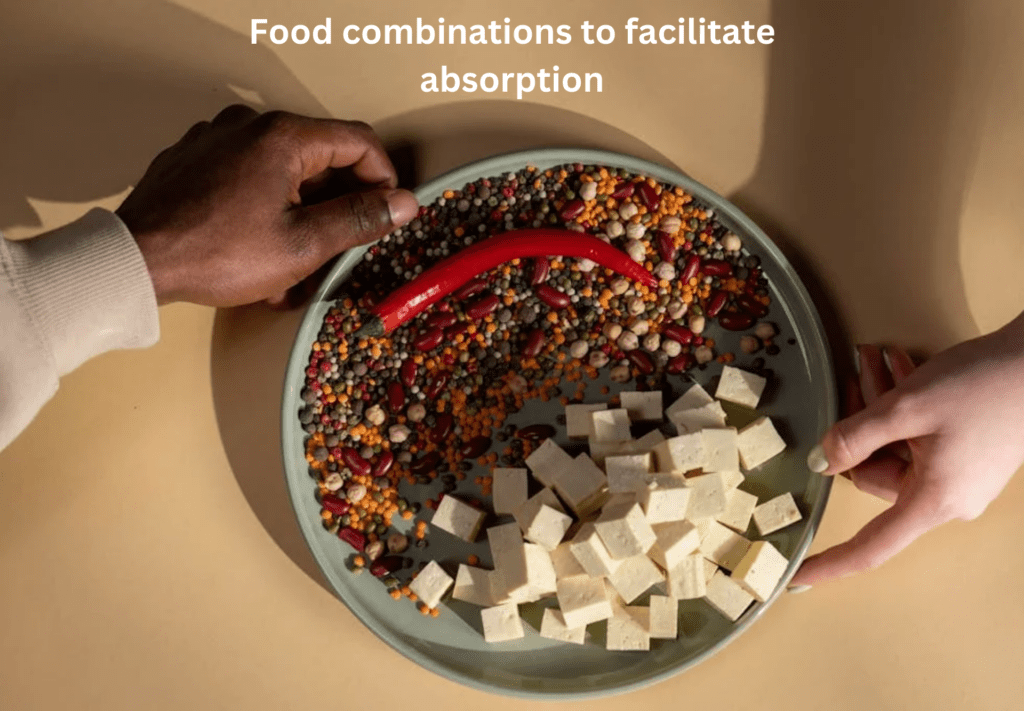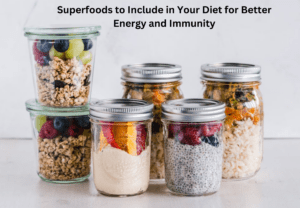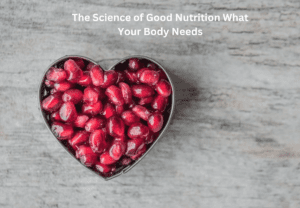An accurate diet makes a big difference in good health. Nutritionally charged foods would power your energy, strengthen your immunity, and get your body running as it could only do at its best. Let’s dive into the top seven nutrient-rich foods that can work that much-needed health jolt.
1. Leafy Greens: The Powerhouse of Nutrition
One class of food items exists above the others by which a man needs more numbers within his diet. This can only be leafy greens since there is a vast likelihood of that containing foods low in calories with many vegetables of vitamins and minerals: probably very much of them with spinach and Swiss chard. Thus, their content of vitamin K most probably leads to healthy bones and an advanced stage of excellent antioxidants to halt the damage of harmful agents that trigger a potentially toxic state among its victims. Besides the above, folate encourages cellular functions, cell growth, etc.
2. Berries: The Antioxidant Superheroes
These fruits come laden with loads of antioxidants within them, carrying little sweet package blues: blueberries, red-dyers raspberries, and then, of course, there are purple-gorged strawberries. The notion behind the berries is that they halt or inhibit oxidative stress in your body, which only minimizes inflammation. Berries are one fantastic source of vitamins C and K, fiber, with many more things that strengthen your immune system, heart health, or even its function that involves the brain.
Pro Tip: Toss a few of the berries in the cup or mix them into the top yogurt; this will make an awesome snack that’s good for your body.
3. Salmon: The Omega-3 King
Other fish that contain omega-3 fatty acids include the rich fatty fish salmon. Salmon has anti-inflammatory properties that assure proper brain performance and heart health. It also facilitates smooth skin and ensures a bright complexion because it is healthy. Salmon also contains proteins and vitamin D for immune functions and bone for immune functions and bone health.
Pro tip: Grilled or baked Salmon with a squeeze of lemon is the perfect fast, healthy dinner.
4. Nuts and seeds: the little energy houses
The nuts and seeds include almonds, walnuts, chia seeds, and flaxseeds. These are very small but pack a lot in terms of nutritional value. They carry good fats, proteins, fibers, and other vitamins needed, such as vitamin E, to ensure proper skin health. The total amounts in chia seeds and flaxseeds carry loads of fiber for digestion. In contrast, walnuts are considerable sources of omega-3 fatty acids.
Pro Tip: Sprinkle some handful of nuts or seeds directly on your salad or snack to have that superpower ingredient all day.
5. Sweet Potatoes: Superfood Powerhouse
Sweet potatoes are a very nutrient-rich food. They are delicious and contain beta-carotene, which converts to vitamin A in the body. Vitamin A plays a vital role in vision and skin. Their high fiber content helps them digest the body and keep it full for much longer. As they happen to be sweet, a delicate balance can be made in recipes that otherwise may be sweet or both at any point in time.
Pro Tip: Toss cubed pieces of sweet potatoes with a bit of olive oil and some herbs, and it becomes one of the healthier side dishes that can easily be had with almost anything for dinner.
6. Greek Yogurt: The Creamiest Protein Source
Greek yogurt is not only a delicious treat. It is also full of protein and calcium while also containing probiotics. Probiotics provide the right gut bacteria, which in turn offers excellent health. The most critical nutrient from them to encourage proper brain functionality is vitamin B12. Greek yogurt, as an excellent source of protein, would also be tremendous for building up the muscles and then repairing the tissues.
Pro Tip: Combine Greek yogurt with honey and nuts for a tasty breakfast or dessert.
7. Avocados
Avocados are packed with healthy monounsaturated fats, much and are heart-friendly. This may make it a superfood for antioxidants and skin health since they are paired with fiber, potassium, and Vitamin E-all creamy, mild, and significant to use in sweet or savory fare.
Pro Tip: Mash an avocado over whole grain toast for a healthy, quick breakfast or mix just a little into a salad to add richness.
More Bonus Tips to get all the minor nutrients
Just sticking with these nutrient-dense foods is a great beginning; however, here are two bonus tips that may be picked out to pull and enhance the benefit so resulting in getting that much from the food items:
1. Eat the rainbow of colors.
The more varied the colors on your plate, the more nutrient-dense the meal will be. Almost all colors have another type of antioxidant, vitamin, or mineral associated with them in fruits and vegetables. So, try to get as many colors as possible into your meals. There’s red, orange, yellow, green, blue, and purple. Each color has different health effects, so getting a lot of variation with your fruit and vegetables is fine.
2. Food combinations to facilitate absorption:
Many nutrients in a food product are best absorbed in the presence of the food. It seems intuitive to eat them all together, too. The old classic is vitamin C-containing foods like bell peppers or citrus fruits. When consumed with iron-rich foods, such as spinach or lentils, then chances are that that form of iron gets absorbed into the body; add healthy fat to your salad, which increases the chances that your body absorbs that, which is fat-soluble, vitamins-A, D, E, K.

3. Know your cooking techniques
They were cooking matters. Extremely heat-sensitive nutrients, like vitamin C and a few B vitamins, will be lost in cooking. This means that meals will be steamed or light pan-fried rather than boiled. Still, these nutrients are nutrients that the body only produces if cooked. For instance, please think of how much richer the omega-3s from Salmon would be than how much richer the lycopene from tomatoes would be when it is cooked. Put all these together because Salmon is served raw and prepared in the diet.
4. Hydration
It’s weird, but water is not food but part of any healthy diet. Proper hydration will enable nutrients to reach all body parts; it can even help your digestion and keep your skin looking bright and beautiful. Drink it throughout the day and substitute some of your meal intake with hydrating foods such as watermelon, cucumber or celery.
5. Never skip breakfast
A good, healthy breakfast is a marvelous lead-in to your other meals. One great healthy breakfast is a bowl of Greek yogurt and berries or chia seeds. Healthy smoothies with leafy greens, fruits, nuts, or avocado will make your day productive.
Conclusion
Today’s food choices affect your health tomorrow. Nutrient-dense foods like green leafy vegetables, berries, Salmon, avocados, and all those healthy foods are not feeding your body. Still, they’re investing in good health in the long run. Not a few things but a significant number to cover nutritional bases.
FAQs
1. Why are leafy greens essential for me?
The other great benefits of leafy green are vitamins and minerals such as folate, vitamin K, and antioxidants. They will prevent a loss of bone, reduce inflammation, and improve overall health and well-being. Virtually no calories at all, so add them to meals to make nutritious accompaniments.
2. How do berries affect my health?
These are antioxidant berries with anthocyanins to support cells against free radicals and inflammation. They are rich in vitamins C and K and can absorb hundreds of fiber. Different diseases target this stage because of the harvesting caused by keeping them healthy, the soundness of their hearts and how they work, and their respective working immune systems. Appropriate consumption of the berries over time would have prevented all these from happening.
3. Why Salmon is healthy?
The most important of these fatty fish is for the high healthy and anti-inflammatory matter within it due to its component of omega-3 fatty acids. Salmon forms another excellent source of fine protein, vitamin D, that doesn’t let one lose integrity in good bones. With such massive diversity in the health benefits of eating Salmon at least two to three times per week, this might be one of the healthiest things one can ever include.
4. Why must I include nuts and seeds in my diet?
These are nuts and seeds, which contain fats and dietary fiber. These foods provide perfect conditions for the heart and digestive systems so that one’s normal energy levels will come to a level in daily life. Various types of antioxidants contribute positively to good conditions for human skin. These seeds and nuts are very rich in vitamin E.
5. Which of the nutrients in sweet potatoes will have a better health
Beta-carotene is rich and converted in the human body to vitamin A, supports good sight and a healthy look on the skin, and is full of fibers, giving easy digestion and satisfaction for a much longer prolonged time. They are also very healthy nutritional sources.




